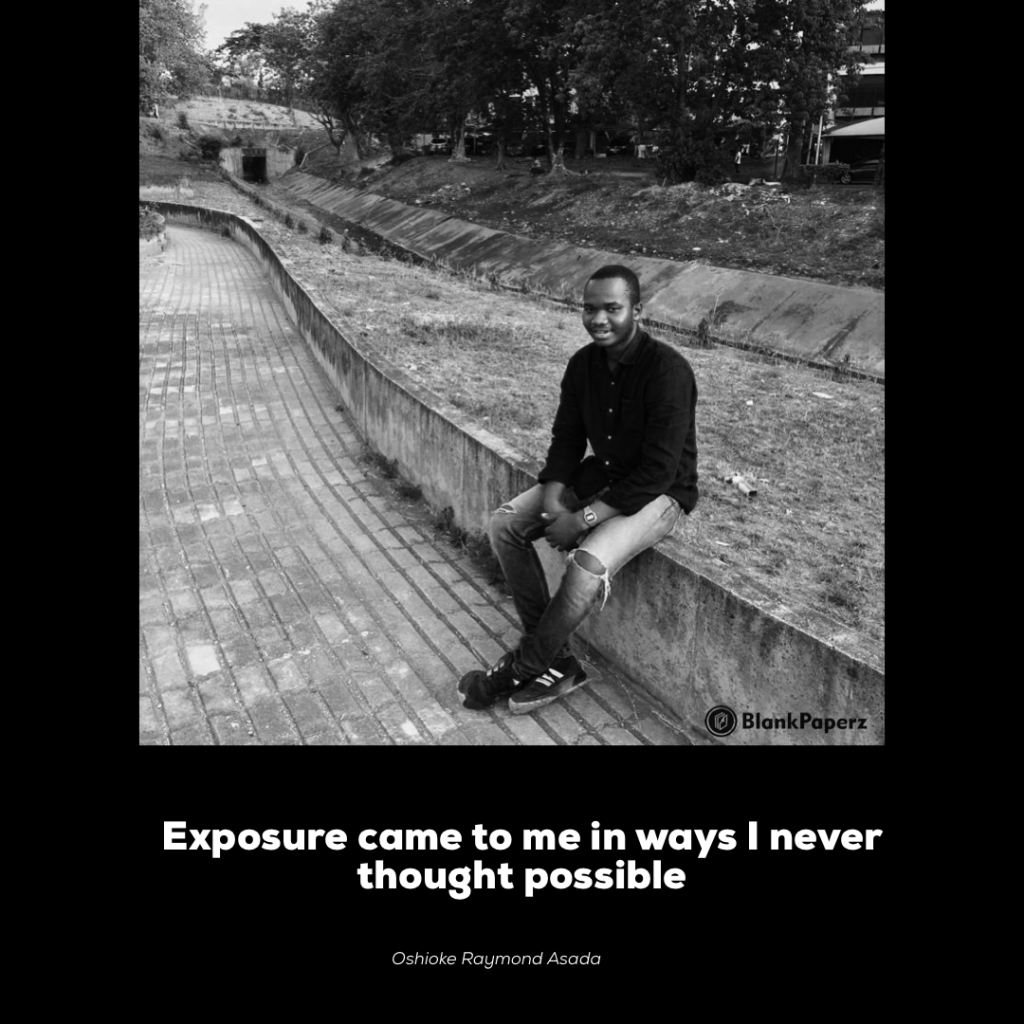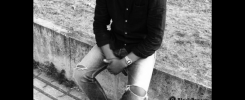
The “Corper’s” main journey into the real world after camp – Jos life! Read part I here.
The new me whispered to myself, so this is what growth and freedom feel like?
Nostalgia quickly caught up with us as the buses streamed out of camp pausing only for us to say bye to the soldiers who liked to throw their weight around albeit in a shameless manner. I caught a glimpse of some girls crying and I wondered if it was young love, because everybody, okay most people had paired up already and the bond seemed like the type that held marriages together. My wonder was quickly doused by the laugh imbued announcement; they had been posted to a village synonymous with riots and uprisings, and even though I wanted to laugh, my heart skipped several pounds because it was pounding at this point. Tentatively I checked my letter to find out where the NYSC would take me to. It said, “University of Jos” I figured that the university had to be in Jos which was the capital of the state so was not prone to violence. Now I wonder why I had to figure that out, because it clearly said “University of Jos” and not university of a town known for violence, but anyway I was safe so it didn’t matter.
The new me whispered to myself, so this is what growth and freedom feel like? I took in the scenery as the bus sped along the recently tarred road into the capital, no, not the way people are depicted in movies taking in the scenery with a soundtrack and all the slow motion. It was just me looking out the window just observing. The driver tells us of how lucky we were the roads were tarred because it used to be crazy to navigate, apparently the president had to commision a project somewhere in the village, so the governor had to quickly get the roads in order. Forty minutes passed and we dropped from the bus in the manner one jumps off a cliff. It was a dive for me, a dive into uncertainty.
“Should I teach, should I be a radio host or should I just stay at home and do nothing?”
Fast forward a couple weeks into the next year and life was going on. Just going on, like the way an engine runs, nothing unusual, and I still wasn’t free, I was in my uncle’s house under the care of my father’s brother, and, as upset as I was, I was grateful I had people to nurse me during the periods of illness I saw. It reminded me painfully of how I hadn’t flown the nest yet, so I gave up and let the NYSC take me. “Should I teach, should I be a radio host or should I just stay at home and do nothing?” These questions mocked everything I planned to do upon arrival in town, weeks slipped into months and I remained immobile mentally and physically, languishing in my wails of when will this servitude be over?
At this point you could deduce that my mind was a hollowed out version of what I felt it should be, all my convictions and beliefs were pulverized by what I felt was a system designed to destroy the weak.
I remember fondly even with a smile sometimes, walking home from clearance one day (this happened every month) nibbling on a corb of roasted corn (I can never do this in Calabar) when a lady approached me, my mind waited for her to ask for directions, but what I heard next threw me off guard.

My melancholy gradually dissipated and when it did, it felt like the cataracts covering my eyes had melted. I saw Jos from a different angle my preconceived prejudice did not let me see. Like a flashback in a movie, sometimes, I remember the bus ride into Plateau state. The bus slowly meandering along the many plains and rocks unlike any I had seen before. The national-geographic-like images, filled me with such awe, noticeable enough for the driver to smirk and tell me in his husky kolanut strewn voice; “yes here is beautiful, everybody dey react like this wen dem just come.” And even now, I remember my head turning around from my astonishment to register the driver’s face, a warm textured face unlike the kolanut in his voice. The driver was our tour guide as well, pointing at the tomato laden fields around the base of some impressive looking hills or rocks I was’nt sure, their peaks had this jagged buttery look to them giving off a welcoming salute, if you looked close enough. I tried to imagine the numerous times I would go rock climbing, thanks to my new found friend; freedom. Something my parents would never allow me do. Everybody in the bus that day tried to make small talk in the bus by saying what they had heard about Plateau state. I remember hearing someone, probably a female, mention that the rocks around plateau were rich in tin and aluminium, exploited by the British before our independence as a country, I barely heard the last word in her statement when shouts of “abeg e don do shebi na you be Azikiwe abi?”
Further into the service year
When I started ironing my khakis myself, and cleaning my jungle boots even though I still I wonder why they are called jungle boots, (they could not last two months of a two hour wear) I finally started talking about things that concerned “corpers” most importantly allawee, how stressful work was, parties and even babes, the service year became bearable because of the routine I had picked up. I noticed something though, talking about the weather in Jos is a big cliche, but somehow, everybody still found ways to comment on the weather including people who had lived in jos all their lives, statements like “ah this cold pass last year own o, e be like say things go just d worse” dressed in clothing I only saw on television, mostly in Russian films. The cold sort of loomed over you and everything you did, forcing you to never forget to plan your life around the cold. Even when the sun shone like the ozone layer had literally vanished, it only shone but did not provide warmth. I guess this was why everything in Jos moved at the same pace with the weather (barely mobile).
All my prejudice had gone around July in 2018, and I vowed to explore Jos, just as a tourist would, every encounter I had in jos from this point were observations followed by close scrutiny, as the urge to compare and contrast grew. Where I had come from, Calabar, a more metropolitan city where every body was laid back but still had a bit of bustle, seemed a distant land by this time. First there was the weather, stark in contrast to Jos where it rained and the sun scorched, there was also the people, who unlike the people in Jos had more restraint when interacting with visitors. I had seen first hand, how “corpers” were treated in Calabar, in a way that seemed like a bit of contempt, whereas in Jos it was like they had seen a spectacle, often giving discounts on the already cheap food, to giving one lifts once you sported the green khaki. I remember fondly even with a smile sometimes, walking home from clearance one day (this happened every month) nibbling on a corb of roasted corn (I can never do this in Calabar) when a lady approached me, my mind waited for her to ask for directions, but what I heard next threw me off guard. “When you are a big man, with a good job, you will remember your service year in Jos, eating corn on the road”. With a smile she left, leaving me too stunned to reply. I mean, even the “keke” guys (tricycle riders) whom you earned more than, by virtue of the government stipend of N19,800 you received, and whatever your place of primary assignment gave you, were willing to give you a free ride every now and then, but in Calabar corps members were sort.of invisible.
He tried to learn Hausa in Jos
Trying to learn the new language (Hausa) was as futile as redeploying to another state at that point (a thought I had often considered) but interactions and transactions with people were not so hampered, except for the occasional “eh” I said when I did not understand the language or hand gestures. Corps members usually swarmed the streets at certain points in the week and month. There were CDS days which abbreviated Community Development Service, where you were supposed to do something good for the community as a group or individually, but in the real sense, an excuse to gather funds for the “corpers” serious enough to become corper politicians. Then, there were clearance days, a day every corps member took seriously otherwise miss out what many of us considered the essence of the youth service. This essence was the N19,800 paid every month to you upon successful clearance, where you had to push and fight your way through the lines to have your thumb print taken, otherwise no “allawee” for you. The biometric verification processes were supposed to be smooth and somehow sophisticated, but it was just a bunch of people even the middle aged ones shoving each other and holding their thumb up high. The shouts of “corper wee” by most corps members I met in the streets or by random people, gave me a sense of belonging my melancholy and high horse had stripped from me.

According to the few persons outside my family, and in my neighbourhood, whom I interacted with, not one year in Jos had gone by without any form of uprising, so I was mandated by way of subtle advice, to stay away from certain areas in Jos highly populated by Muslims and the Hausa people, it took me a while to learn that Hausa people were not the same as Plateau people, because everyone looked the same in their flowing kaftans and black faces. A theory surrounds why Plateau people are so black, it says the extreme cold causes their blood to congeal, thus killing their skin cells which give them a burnt look, a claim I believed since my skin darkened during my stay in Jos. Now I laugh at that claim when I look at my hands and see the lighter shade it has taken since I became happier and started eating better. I remember the first time I witnessed an uprising in Jos, it was far from me but it had those ripple effects I always heard about. The subtle advice of “you can go to those areas, but it’s better you don’t” didn’t do justice to the level of violence I heard had been perpetuated. Tales of how many people died daily during night raids by “unknown gunmen” and retaliatory attacks were rife in town. I remember a particularly chilling story of a man who found himself in the wrong place at the wrong time trying to deliver dog meat (Plateau men are terribly fond of this) only to be slain like the dog he had come to sell. His family in efforts to warn him of the area, called his phone, only for his killers to pick telling them to come and get his dead body. These were the tales that made the already cold town more chilly, only for normalcy to return a few days later, just like nothing happened, a weird dynamic between life and death the state people are used to. I remember the SMS from the secretariat warning corpers to abandon plans of clearance that week, that the clearance would be moved to a later date, adding that life was more important. Of course it was more important and the buzz that came with that period of unrest was a buzz though chilling, had an eerie cool to it. My parents phoned me daily telling me to avoid certain places like they had a hidden base in Jos observing things. Even my friends from camp who had run away phoned me to express their concern or rather admonish me for not redeploying. Damn it was a buzz!

Often times, during my stay in Jos, I escape to the rocky areas of town where explosions tell a story of mining and exploitation. I usually let my eyes wander over the jagged edges surrounding the numerous plateaus atop the rocks, reflecting on how much my life resembled the rocks; blown up by experience and growth, but occasionally the gentle caress of the wind at such heights, seem to say to me “everything will be okay.” To run the risk of recreating a scene from a movie I must say, from my journey to camp, my journey through the service year and my journey through my self I see how much growth and freedom I have experienced, things I tried so hard to force.
P.S. Camp was in a place called Mangu Mangu.
Written by Oshioke Raymond Asada
Read the Part I of this story here and check out another favorite from Oshioke titled This is Nothing. Do you want to share with BlankPaperz too? Take a dip into the submission page!



Yes, I believe it is a wonderful experience.
Unfortunately, some persons, who would have loved to have such wonderful experience (s) and also, live to tell their stories have been “cut-off” due to barriers such as age-limit. Such persons have refused to go through the “back-doors” and have decided to be honest citizens…
But in all, Raymond’s experience is enticing and most welcomed with open arms and great thanks…
God bless you Sir for sharing…
Gracey…
Absolutely! And thank you for sharing your thoughts Grace.
Yes, I believe it is a wonderful experience.
Unfortunately, some persons, who would have loved to have such wonderful experience (s) and also, live to tell their stories have been “cut-off” due to barriers such as age-limit. Such persons have refused to go through the “back-doors” and have decided to be honest citizens…
But in all, Raymond’s experience is enticing and most welcomed with open arms and great thanks…
God bless you Sir for sharing…
Gracey…